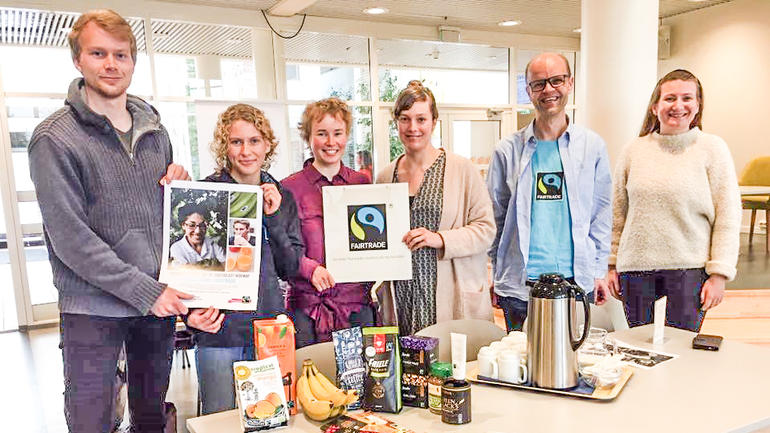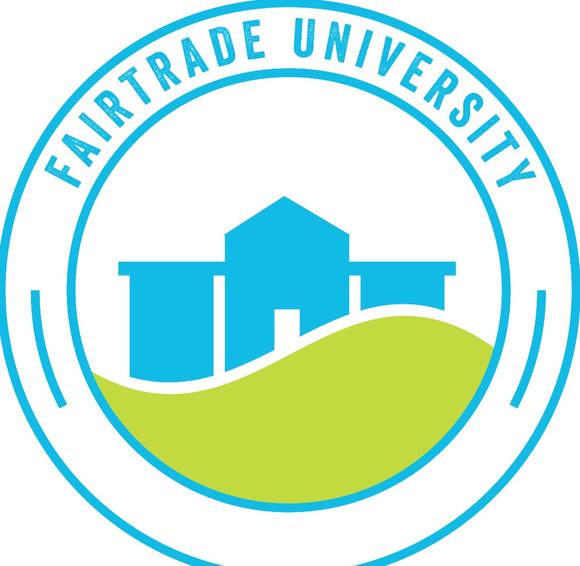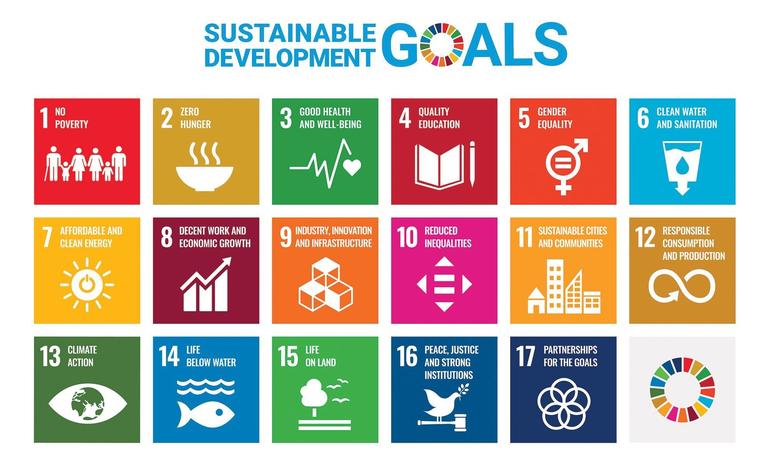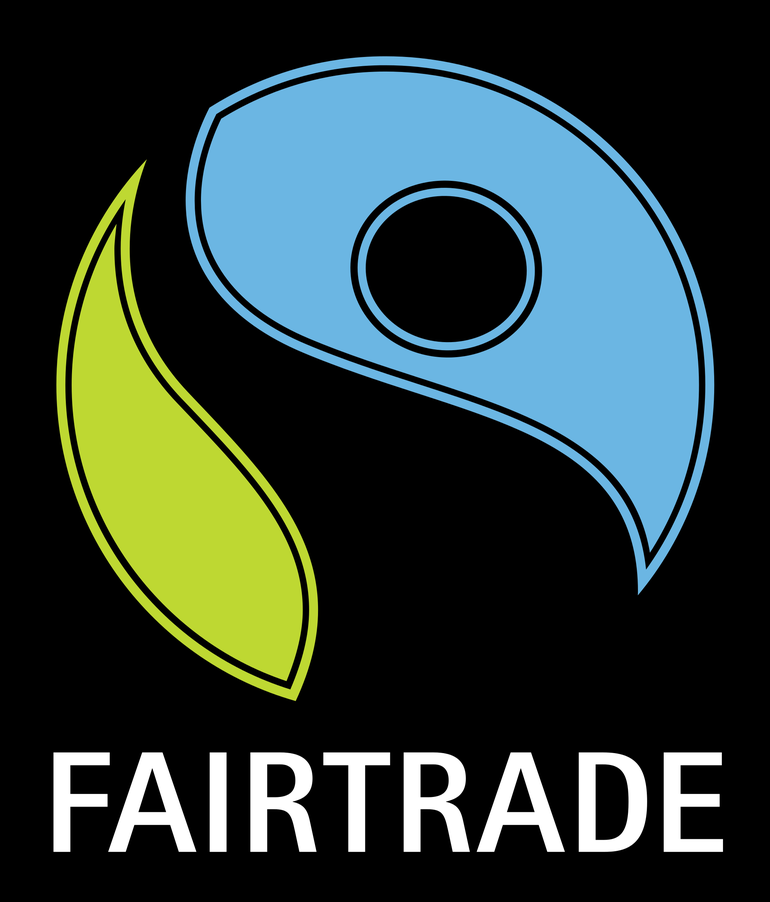USN has chosen to become a Fairtrade University because this is in line with our values, strategies and priorities. When USN was granted university status we established a goal that our students should become socially conscious citizens and encouraged to adopt a globally responsible outlook.
Our vision is that we shall train a workforce of graduates here in south-eastern Norway that contribute towards making a better world, both during and after their education and regardless of their choice of study or profession.
USN has a great responsibility, locally, regionally and globally, for helping to ensure that the UN's Sustainability goals are met, and we have thus assigned this high priority.
The Board has approved a strategy incorporating clear expectations that USN shall be socially conscious and adopt a global outlook. Our status as a Fairtrade University constitutes a key component of our priorities and our strategy
USN shall employ work-life integration research as a means of supplying knowledge and expertise with the aims of meeting the challenges linked to climate change, energy and poverty, ensuring the sustainability of the welfare state, and strengthening interpersonal relations in a globalised world.
USN strategy 2017-2021
Preamble
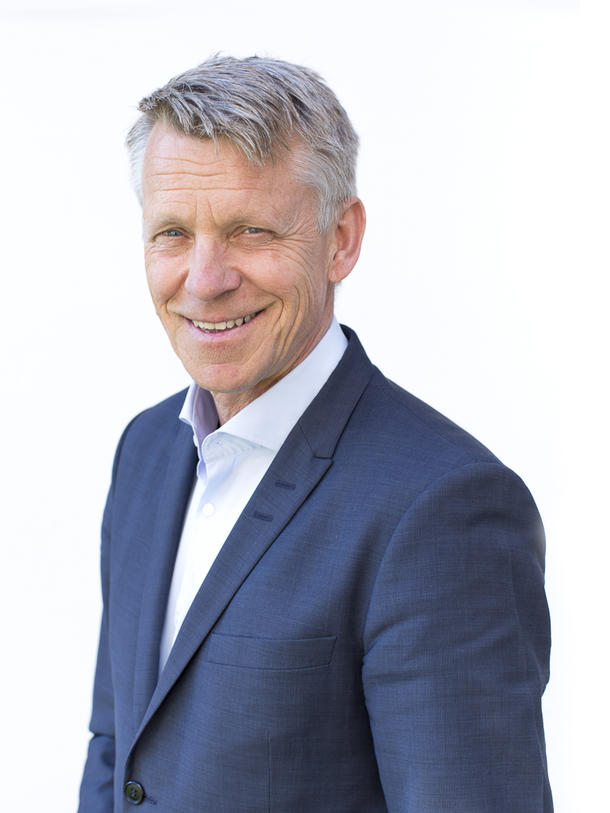 In 2016, following active involvement from UCN students and staff, the Board decided that the then University College of South-Eastern Norway (HSN) should become a Fairtrade University College. HSN was not however the first in Norway because the former University College of Telemark had previously achieved this status in 2013.
In 2016, following active involvement from UCN students and staff, the Board decided that the then University College of South-Eastern Norway (HSN) should become a Fairtrade University College. HSN was not however the first in Norway because the former University College of Telemark had previously achieved this status in 2013.
In compliance with the criteria for Fairtrade status, a Steering Committee has been set up to advance this work. The committee is currently chaired by Deputy Rector Nils Kristian Bogen (right) and includes representatives from all facets of the university, including students, and teaching and research staff. The regional student welfare organisation (Studentsamskipnaden i Sørøst-Norge) is also represented.
A Fairtrade Coordinator has also been appointed in a 60 per cent post who will work to coordinate and implement the various projects linked to USN’s Fairtrade activities. The coordinator also acts in a secretarial role for the Steering Committee and is the point of contact for Fairtrade-related activities that are carried out both within and outside USN.
What is “fair trade”?
The fair trade concept incorporates ensuring adequate incomes for workers and farmers in vulnerable areas of the world. Even though a large proportion of the global population works to produce the raw materials demanded and consumed by the rest of the world, many of these workers continue to live in poverty.
The aim of fair trade is that regardless of where someone lives and works, he or she shall be able to get themselves out of poverty and assume control of their own lives, supported by an acceptable income. Fair trade programmes ensure that people who work to produce raw materials receive an income for their work and that the same producers receive a proper proportion of sales revenues.
“Fairtrade” is the world's best known and recognised brand accreditation for fair trade, and offers a variety of programmes to participating workers and farmers. The programmes involve grants for education, subsidies to support production and advisory services.
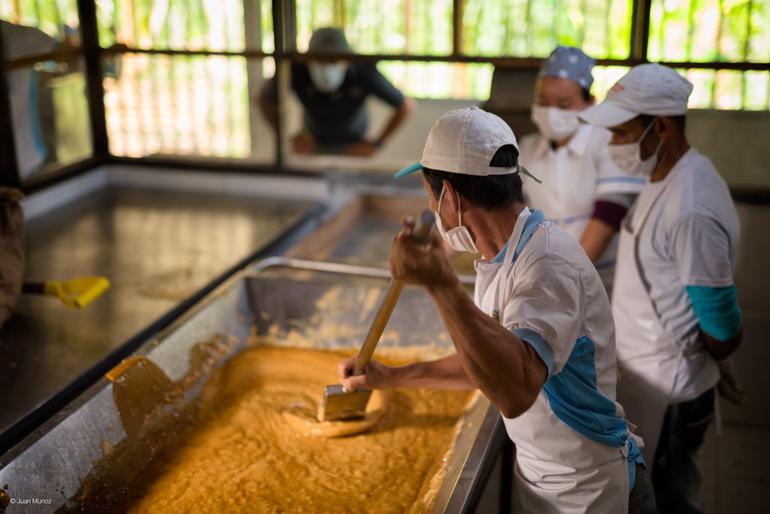
Major challenges
Even though the number of poor people in the world is in decline, much remains to be done in many areas.
For example,
- the UN calculates that about 40 million people still live in conditions tantamount to slavery.
- 700 million people are living in extreme poverty
- there are 218 million child workers
Fair trade programmes provide opportunities for closer contact between the workers and farmers that produce the raw materials and the international companies that purchase and sell them. It is under this relationship that the producers often become the victims of exploitation, and the aim of the programmes is to prevent this from happening.
Fair trade programmes also ensure that consumers that purchase the finished product are made aware of the issue and that they make demands linked to the products they purchase. Fairtrade accreditation places strict demands on cooperatives and plantations regarding the wages they pay, workers’ rights and the prohibition of child labour.
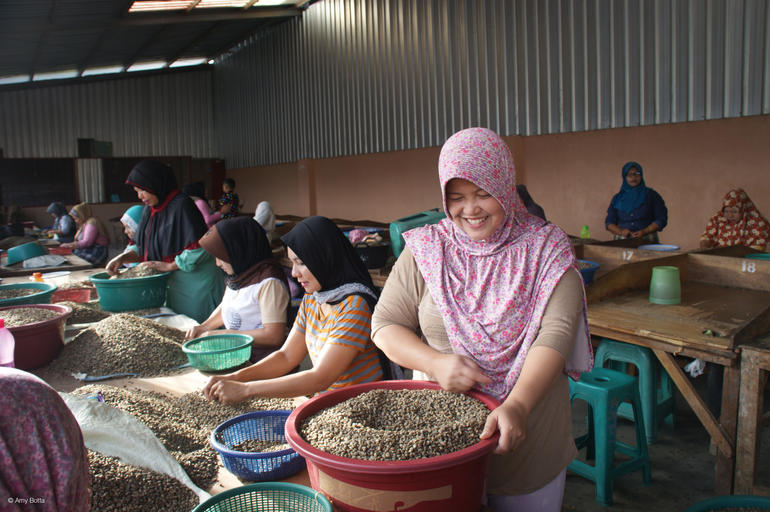
Strict supervisory regimes are also put in place to ensure that agreements are complied with, and a great deal of research is carried out to ensure that fair trade programmes work in practice.
- Read more about how fair trade programmes work (in Norwegian).
- Read the article “The Economics of Fair Trade” by Raluca Dragusanu, Daniele Giovannucci and Nathan Nunn, who are researchers at Harvard University.
Fair trade and the UN’s Sustainability Goals
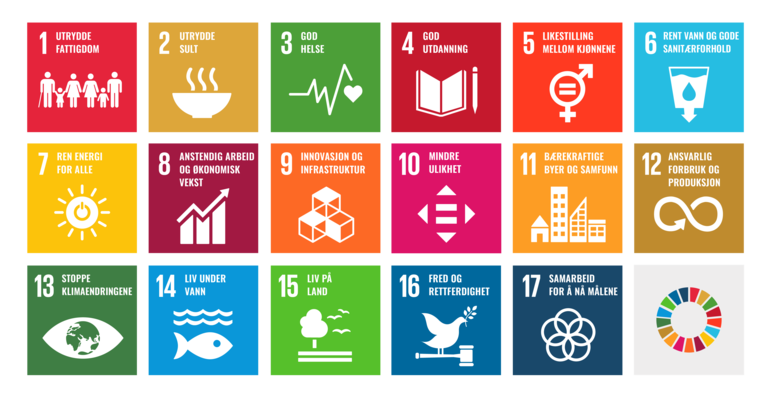
Meeting the UN’s Sustainability Goals is an important priority for both USN and the Norwegian government. Fair trade is closely linked to many of the UN’s Sustainability Goals.
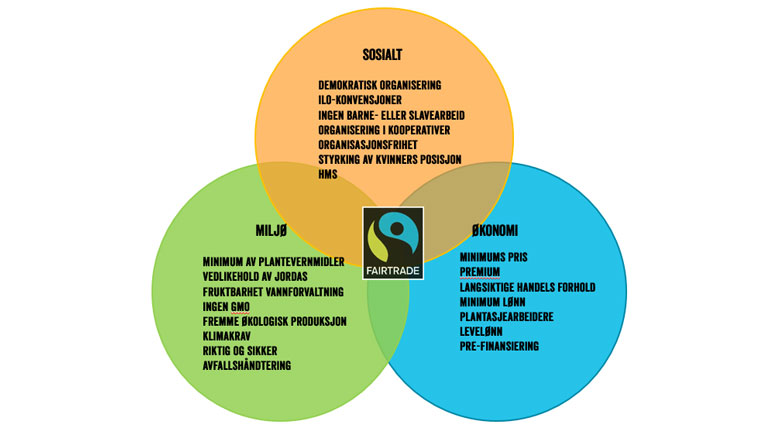
USN’s work linked to fair trade was one of the initiatives proposed in the report Tilstandsrapporten for høyere utdanning (Higher Education Status Report), published in 2019, which addressed the UN’s Sustainability Goals and the work involved to implement the so-called Green Transition. The status report forms the basis of the work to promote higher education in Norway under the auspices of the government and the Ministry of Education and Research.
In the long term, we want to see both our students and staff assume a greater sense of ownership of USN as a Fairtrade University and to implement individual projects on their own initiative.
Tilstandsrapporten for høyere utdanning 2019 (Higher Education Status Report, 2019)
The Norwegian Agency for International Cooperation and Quality Enhancement in Higher Education (Diku)
What does Fairtrade University status mean for USN?
Fairtrade status is awarded when an institution meets a series of criteria stipulated by Fairtrade Norge.
These criteria include the following:
- Establishment of a Steering Committee on which both university staff and students are represented.
- The use of fair trade products at events/meetings organised by the institution.
- Fair trade-labelled products are made available at sales and catering outlets on campus.
- On-campus campaigns shall be held to boost awareness of the Fairtrade brand.
- University Board approval shall be in place.
There is a common misunderstanding that Fairtrade status imposes strict requirements that either the majority of purchases made by the university should be sourced from fair trade producers, or that Fairtrade outcompetes other brand purchasing arrangements that operate in more or less the same way. This view is misguided.
Fairtrade status is a declaration made by USN that the university intends to contribute in the fight against global poverty, climate change and modern slavery. Fairtrade accreditation can be adopted in parallel with other initiatives at USN that address meeting these challenges.
At the same time, USN shall use and highlight Fairtrade products when this is considered appropriate. The intention is that it shall become worth our while to opt for Fairtrade, and we are working continuously to achieve this aim. We also wish to send a clear signal to organisations that collaborate with USN that the university values sustainability, democracy, ethics and the environment in its partnerships with said organisations.
